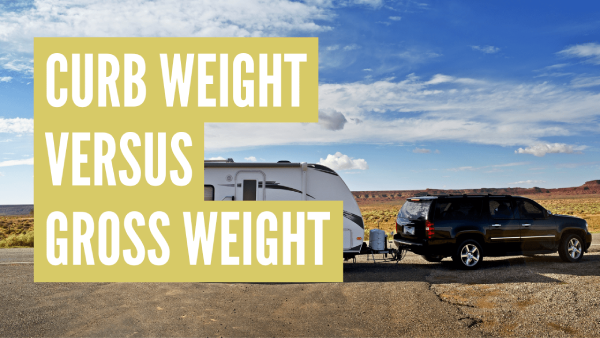Understanding Curb Weight vs Gross Weight in Vehicles
When delving into the specifics of vehicle specifications, terms like "curb weight" and "gross weight" often come up. These terms can sometimes be confusing, especially if you're not familiar with automotive jargon. However, understanding the difference between curb weight and gross weight is essential for anyone interested in vehicle performance, safety, and functionality. In this article, we'll break down these two key metrics, explain their significance, and explore how they impact your vehicle’s performance and efficiency.

What is Curb Weight?
Definition and Measurement
Curb weight, also known as kerb weight, refers to the weight of a vehicle when it is in its standard, ready-to-drive condition. This includes the weight of the vehicle with a full tank of fuel, all essential fluids (like oil and coolant), and the standard equipment that the vehicle comes with from the manufacturer. Essentially, curb weight represents the vehicle’s weight without any additional load, such as passengers or cargo.
The curb weight is measured when the vehicle is resting on a flat surface, often referred to as the "curb." This standard measure allows manufacturers and consumers to understand the base weight of the vehicle, which is crucial for various performance metrics, including fuel efficiency and handling.
Importance of Curb Weight
Knowing the curb weight of your vehicle is essential for several reasons:
- Fuel Efficiency: Heavier vehicles generally consume more fuel. Understanding curb weight helps in assessing the potential fuel efficiency of a vehicle.
- Handling and Performance: The weight of the vehicle affects its handling characteristics. Heavier vehicles may have a different driving experience compared to lighter ones.
- Safety and Regulations: In some regions, curb weight is used to determine certain regulatory requirements, including emissions standards and vehicle registration fees.
For expert advice on maintaining your vehicle and to explore our range of services, including premium car coating , Car Coating , Car detailing, Ceramic coating, bike detailing, Nano Ceramic Coating to keep your car looking its best. Visit our website at detailingdevils.com . Learn more about our services and franchise opportunities to elevate your vehicle’s comfort and enjoyment.
What is Gross Weight?
Definition and Measurement
Gross weight refers to the total weight of a vehicle including all its contents. This encompasses the combined weight of the vehicle itself (curb weight) plus any additional load it carries, such as passengers, luggage, accessories, and any other modifications or equipment. For commercial vehicles, gross weight can also include any trailers or additional attachments.
The gross weight is a critical metric for understanding the full capacity of a vehicle and is particularly important in scenarios where weight limits are a concern, such as crossing bridges or operating in areas with weight restrictions.
Importance of Gross Weight
Understanding gross weight is crucial for various reasons:
- Load Capacity: Gross weight helps determine how much additional weight a vehicle can safely carry. This includes the weight of passengers, cargo, and any additional accessories.
- Safety Compliance: Vehicles must adhere to weight limits for safe operation. Overloading a vehicle can lead to mechanical issues, safety hazards, and legal consequences.
- Performance and Wear: Excessive weight can impact vehicle performance, fuel efficiency, and accelerate wear and tear on components.
The Difference Between Curb Weight and Gross Weight
The key difference between curb weight and gross weight lies in the additional load that each measurement includes. Curb weight is the vehicle’s weight without any extra load, while gross weight includes everything the vehicle is carrying.
To determine the payload capacity of your vehicle, you subtract the curb weight from the gross weight. This payload capacity is the amount of additional weight the vehicle can safely handle, which includes passengers, luggage, and any other items or modifications.
Example Calculation
If a vehicle has a curb weight of 3,000 pounds and a gross weight limit of 4,500 pounds, the payload capacity would be:
This means the vehicle can safely carry 1,500 pounds of additional weight, including passengers and cargo.
Practical Implications for Vehicle Owners
- Fuel Efficiency: Heavier loads generally lead to lower fuel efficiency. Understanding your vehicle’s curb weight and payload capacity helps manage and optimize fuel consumption.
- Driving Dynamics: The weight of your vehicle, including additional cargo, affects driving dynamics. Heavier vehicles may have different handling characteristics compared to lighter ones.
- Regulatory Compliance: For commercial vehicles, adhering to weight limits is crucial to avoid fines and ensure safety.
Conclusion
Curb weight and gross weight are fundamental metrics in understanding your vehicle’s capabilities and limitations. While curb weight gives you the baseline weight of the vehicle, gross weight provides insight into the total load it can handle. By knowing these weights, you can better manage your vehicle’s performance, safety, and efficiency. Always refer to your vehicle’s owner’s manual for specific weights and capacities to ensure optimal operation and compliance with safety standards.
See Also :
- Best Car Cleaning Service in Noida - Find the best car cleaning services in Noida and keep your car looking new.
- Car Detailing Products - Discover the best products for car detailing and how to use them to achieve a professional shine.
- Detailing Services for Different Cars - Learn about the different types of detailing services available for different types of cars and which one is best for you.
- Car Detailing for Different Seasons - Find out how to prepare your car for different seasons with the right detailing methods and products.
- How to clean your car’s interior - Learn the 8 best techniques and products for cleaning the interior of your car, including the seats, dashboard, and carpets.
- How to clean car exterior in 6 easy steps - Discover the best ways to wash and protect the exterior of your car, including the paint, wheels, and windows.
- Detailing vs Washing - Understand the difference between detailing and washing and how to choose the right service for your car's needs.

